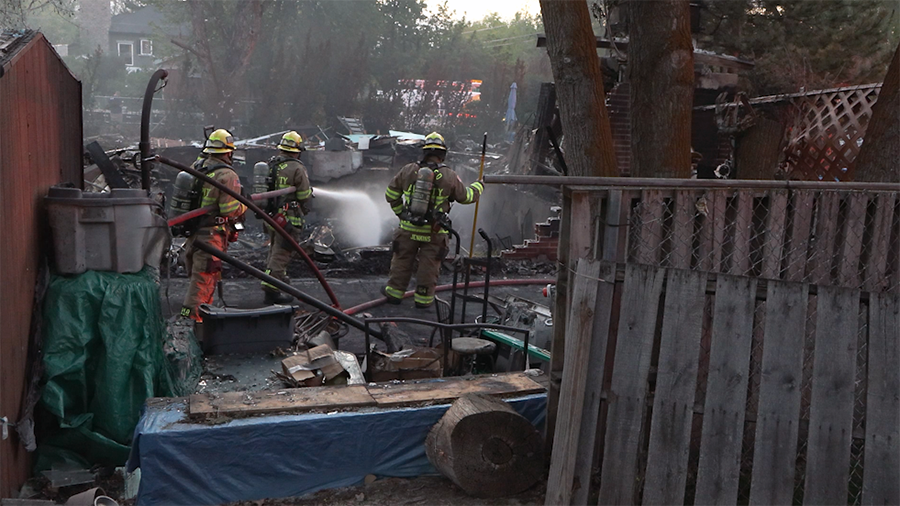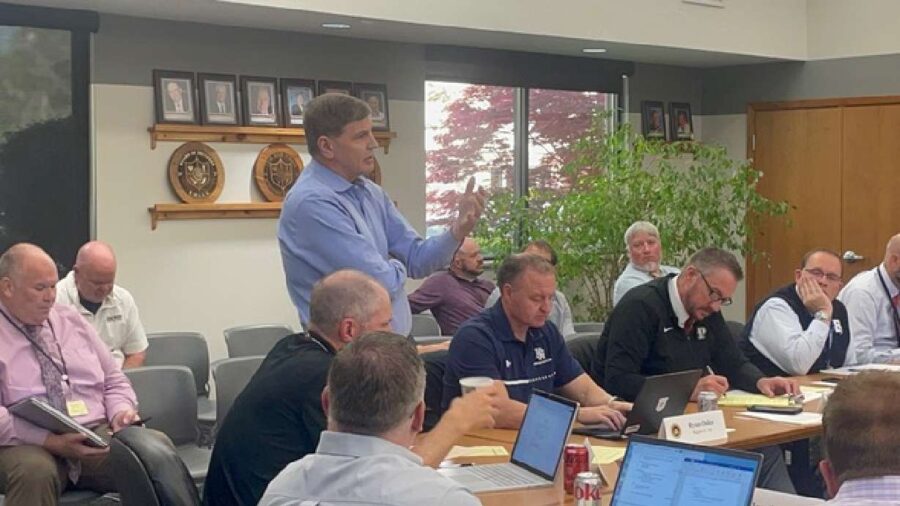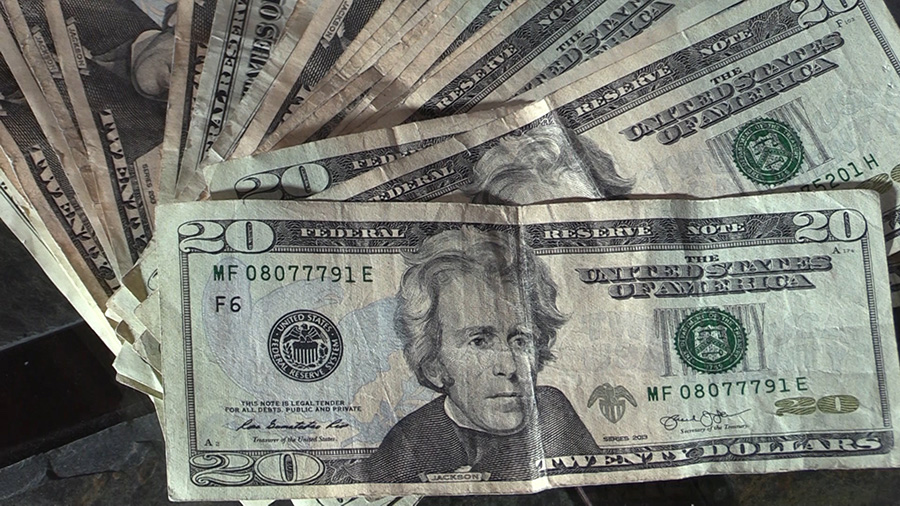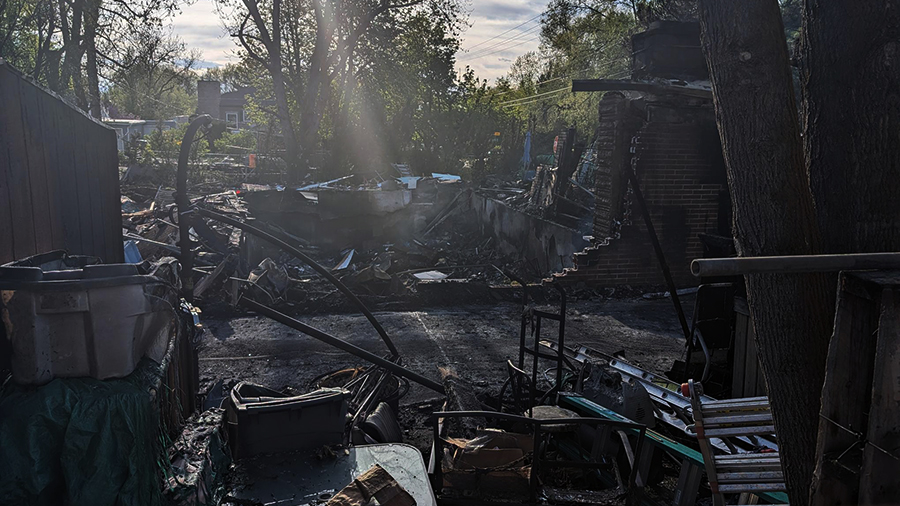Supreme Court declines to hear Utah gun rights activist’s appeal to overturn bump stock ban
Oct 4, 2022, 7:52 AM | Updated: Nov 18, 2022, 11:37 pm
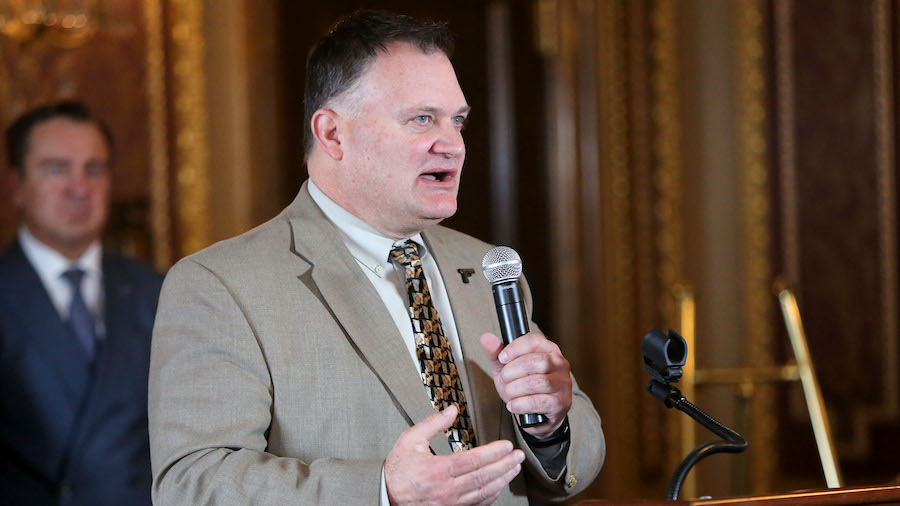
Clark Aposhian, chairman of the Utah Shooting Sports Council, introduces himself as a member of a new Utah School Safety Commission at the Capitol in Salt Lake City on Thursday, March 1, 2018. The diverse, nonpartisan commission will meet behind closed doors to develop recommendations to be forwarded to the Utah Legislature, likely before the start of the next school year. (Kristin Murphy/Deseret News)
(Kristin Murphy/Deseret News)
SALT LAKE CITY — A prominent Utah gun rights activist has lost his bid to convince the U.S. Supreme Court to overturn the federal bump stock ban.
The Supreme Court on Monday announced it has declined to review a pair of cases filed by Clark Aposhian, chairman of the Utah Shooting Sports Council, and Gun Owners of America. The nation’s highest court did not explain why it declined to weigh in on the issue.
“We, along with most Second Amendment advocates, of course, are disappointed because all the tell-tale signs were there that the court was going to hear it, but we respect the court’s decision in this matter,” Aposhian said Monday.
“We aren’t giving up. I imagine that this case wasn’t the right case for this court to address,” he said, adding that the court may have determined it already settled the issue in a recent case, West Virginia v. Environmental Protection Agency.
In that case, the Supreme Court reined in the federal agency’s ability to limit power plant emissions under the Clean Air Act, Thompson Reuters reported.
Other bump stock cases are proceeding in the 5th and 6th Circuit Court of Appeals, Aposhian noted. He said the Supreme Court might be “forced” to revisit the issue if those courts come to different opinions. Now, Aposhian’s case returns to the Utah District Court for a ruling on its merits, but “we’re not optimistic on that one,” he said.
The case was about “government agency overreach and agencies making their own law beyond what they were intended to be able to do.”
Aposhian is “not a huge fan of bump stocks” and described them as a “vehicle” for addressing the issue of federal agencies effectively writing laws, which he said affects everyone in the country.
What are bump stocks?
Bump stocks modify semiautomatic rifles to fire more quickly than conventional gunstock. Use of the device came under scrutiny after a gunman killed 58 people and wounded 500 others at a country music festival in Las Vegas in 2017, while using a gun modified with a bump stock. He fired more than 1,000 rounds in 11 minutes
The law defines a machine gun as one that fires more than one shot automatically by a single function of the trigger. A bump stock uses the recoil energy after a shot is fired to keep a gun firing by rapidly bumping the trigger against the shooter’s finger.
The Bureau of Alcohol, Tobacco and Firearms under the administration of then-President Donald Trump adopted a regulation that redefined the devices as machine guns, effectively banning them. The rule directed owners to destroy or surrender their bump stocks to the ATF before it took effect in March 2019, or face criminal penalties.
Aposhian originally sued the Department of Justice and the ATF in 2019, alleging the federal agencies violated the Constitution and that only Congress should be able to ban the devices.
A federal judge in Salt Lake City ruled that Aposhian didn’t show a “substantial likelihood” of winning the lawsuit on its merits and, as a result, denied his motion for a preliminary injunction to block the rule from taking effect. He appealed to the 10th Circuit Court of Appeals and lost that appeal in May 2020. He then took the case to the U.S. Supreme Court after the circuit court declined to hold another hearing.
Aposhian’s appeal and that filed by Gun Owners of America questioned whether the definition of a machine gun is clear in the law and whether the ATF should be able to determine what falls under the definition of a machine gun if the definition is ambiguous. Lower courts did not come to a consensus on those questions, according to the pair of appeals.
Aposhian said Monday he does not believe a bump stock constitutes a machine gun. “For the agency to say that this piece of plastic with no moving parts is a machine gun, I think it’s a huge overreach. … And if the ATF is able to do that, there’s not many other things that they couldn’t also interpret in such a fast and loose way.”
He said that would pave the way for other agencies to make decisions in “other aspects of American life.”
In lieu of the Supreme Court hearing the case, the decision of the lower courts to uphold the federal ban remains in place.


